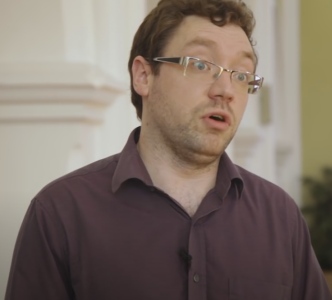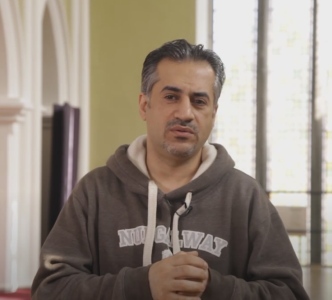-
Courses

Courses
Choosing a course is one of the most important decisions you'll ever make! View our courses and see what our students and lecturers have to say about the courses you are interested in at the links below.
-
University Life

University Life
Each year more than 4,000 choose University of Galway as their University of choice. Find out what life at University of Galway is all about here.
-
About University of Galway

About University of Galway
Since 1845, University of Galway has been sharing the highest quality teaching and research with Ireland and the world. Find out what makes our University so special – from our distinguished history to the latest news and campus developments.
-
Colleges & Schools

Colleges & Schools
University of Galway has earned international recognition as a research-led university with a commitment to top quality teaching across a range of key areas of expertise.
-
Research & Innovation

Research & Innovation
University of Galway’s vibrant research community take on some of the most pressing challenges of our times.
-
Business & Industry

Guiding Breakthrough Research at University of Galway
We explore and facilitate commercial opportunities for the research community at University of Galway, as well as facilitating industry partnership.
-
Alumni & Friends

Alumni & Friends
There are 128,000 University of Galway alumni worldwide. Stay connected to your alumni community! Join our social networks and update your details online.
-
Community Engagement

Community Engagement
At University of Galway, we believe that the best learning takes place when you apply what you learn in a real world context. That's why many of our courses include work placements or community projects.
Cellular and Molecular Biology (Structured PhD)
Course Overview
The area of Cellular and Molecular Biology has developed rapidly during the past decade. It feeds an active biotechnology industry and underpins many recent advances in molecular medicine. This creates strong demand for a new generation of highly skilled researchers with expertise in this area. This PhD programme in Cellular and Molecular Biology addresses this need by providing a structured training programme with the following key features:
- broad knowledge in the molecular biology of mammalian cells
- training in relevant advanced technologies
- multidisciplinary and interdisciplinary approach
- meaningful exposure to non-academic sector
- development of independent and critical thinking
- development of communication skills
This PhD programme will focus on the molecular mechanisms that maintain cellular homeostasis and on the mechanisms that dictate tissue and organism-level homeostasis. Individual research themes will be selected and developed to address contemporary research questions in these topics. They will address the regulation of these cellular functions at three hierarchical tiers: molecular-, cellular- and supracellular levels. The research themes of the programme include cellular stress responses, mechanisms of cell death, cell survival regulation by the tissue microenvironment; altered cell signalling in the development of disease states. The goal of our research is to promote the understanding of altered cell signalling that drives development of disease, with a view to targeting these processes in cancer and degenerative diseases.
It is envisaged that the students will be well placed to pursue careers in biomedical research or the biotechnology/pharama industry, particularly in areas relating to cancer, degenerative diseases, metabolic disorders and inflammation.
Programmes Available
Structured PhD in Cellular and Molecular Biology. Applications are made online via the University of Galway Postgraduate Applications System.
Associated
Learning Outcomes
Entry Requirements
At least an upper 2.1 grade in BSc or equivalent in Biochemistry, Cell Biology, Biotechnology or similar relevant subject area.
Who’s Suited to This Course
Current research projects
- Omics technologies to understand the ER stress response
- Assessing the potential of IRE1/XBP1s for therapeutics and diagnostics in breast cancer
- Targeting ATF6 as an anti-cancer strategy
For information on this lab and more detail of the projects please see www.apoptosis.ie or contact adrienne.gorman@universityofgalway.ie
Current funded research opportunity
Work Placement
Related Student Organisations
Career Opportunities
Find a Supervisor / PhD Project
If you are still looking for a potential supervisor or PhD project or would like to identify the key research interests of our academic staff and researchers, you can use our online portal to help in that search
Course Outline
[an error occurred while processing this directive]Research Areas
The over-arching research is in the general area of cell signaling, particularly as it relates to biochemical mechanisms that maintain cellular homeostasis. The particular research areas of interest include cellular stress responses, proteostasis, mechanisms of cell death, cell survival regulation by the tissue microenvironment and altered cell signalling in the development of disease states. The driving goal of our research is to promote the understanding of altered cell signalling that drives development of disease, with a view to targeting these processes in cancer and degenerative diseases.
Researcher Profiles
Professor Afshin Samali
www.nuigalway.ie/biochemistry/staff/samali/index.html
Dr Adrienne Gorman
www.nuigalway.ie/biochemistry/staff/gorman/index.html
Dr Eva Szegezdi
www.nuigalway.ie/biochemistry/staff/szegezdi/index_szegezdi.html
Course Fees
Fees: EU
Fees: Non EU
Extra Information
EU Part time: Year 1 €4,250 p.a. (€4,390 including levy) 2024/25
All students, irrespective of funding, must pay the student levy of €140.
Contact Us
Adrienne Gorman
E: adrienne.gorman@nuigalway.ie
www.apoptosis.ie
www.nuigalway.ie/biochemistry/staff/gorman/
Related links:
![]() Scholarships
Scholarships
![]() Research
Research
![]() Graduate Studies Office
Graduate Studies Office




















